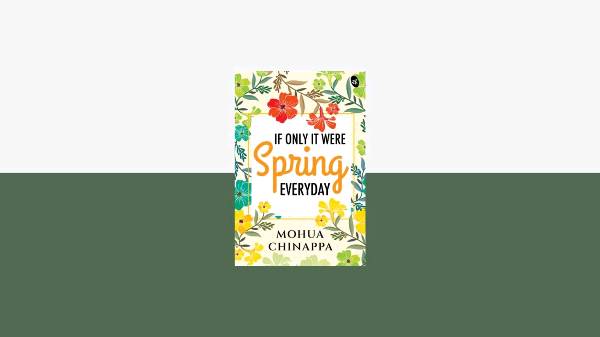If Only It Were Spring Everyday - Author, poet & podcaster Mohua Chinappa in conversation.
It's such an honor to have her join me today as we talk about her powerful storytelling and advocacy, discovering the inspiration behind her work in literature, podcasting, and social causes. Hello, Mohua. Thank you so much for joining in
Mohua Chinappa
@Mohua · 1:51
And I began writing blogs on arts and crafts and gender, and the blog went on to do well. And then from there, my book. And from there, the podcasting journey began, where I started recording my own writings. And then somehow, having been a journalist in the past and having been also in the branding space as a PR person, I felt that this was a space that would grow over time to have interviews via podcast and audio medium. And that's how I started
Mohua Chinappa
@Mohua · 1:26
I saw mayhem of Somni laborers who were traveling on their cycles with little children, wives, and their belongings, and they were trudging miles and miles without even a sandal on their feet, braving the hot sun, trying to just reach back home. And that was a real knock in my head and an awakening of sorts to realize that I may not be able to help every person, but I can definitely write. And writing for me is also a kind of expression for many things that I feel
Your poetry and storytelling often reflect societal injustices and the struggles of marginalized communities. How do you approach the process of translating these real life experiences that you come across into compelling narratives, and what do you hope to achieve through your work?
Mohua Chinappa
@Mohua · 1:19
To watch the rapists of Bilkis Banu being garlanded and being fed sweets when they were coming out of jail was also such a it really demotivated me as a woman. I felt hurt, I felt violated for somebody who had struggled so many years to get justice. Also the rape of the women in Manipur who were paraded naked and there were thousands of men brandishing swords who were groping a young girl and her mother
Mohua Chinappa
@Mohua · 1:04
So all of these stories, I think, is the landscape of a larger fabric called India. And these stories matter and people matter. And as a poet and an author, I think my life endeavor is to bring forth stories that are not heard. I think they need to be given that honor for being able to be brave in spite of life circumstances and carry on their lives with dignity. So that is my endeavor of bringing forward marginalized stories of people
This brings me to my last question. Mohua, your podcast. The Mohua show amplifies voices and facilitates change. Could you perhaps share with us some memorable moments or conversations from your podcasting journey that have had a very lasting impact on you or maybe on your audience? I'm really curious. Also, thank you so much for taking the time out and joining in to have this conversation with us today
Mohua Chinappa
@Mohua · 3:03
So all of those stories, I think, needed a retelling, and actually not a retelling. They needed to be told. And the podcast actually has activists, lawyers, people from the LGBTQ community who may not be there on mainstream media to share their entire story. So we've had some amazing guests from all across the world. We've had lawyers and activists from South Africa who've spoken about breast ironing FGM, which is female genital mutilation that happens even today among the women there in Africa


